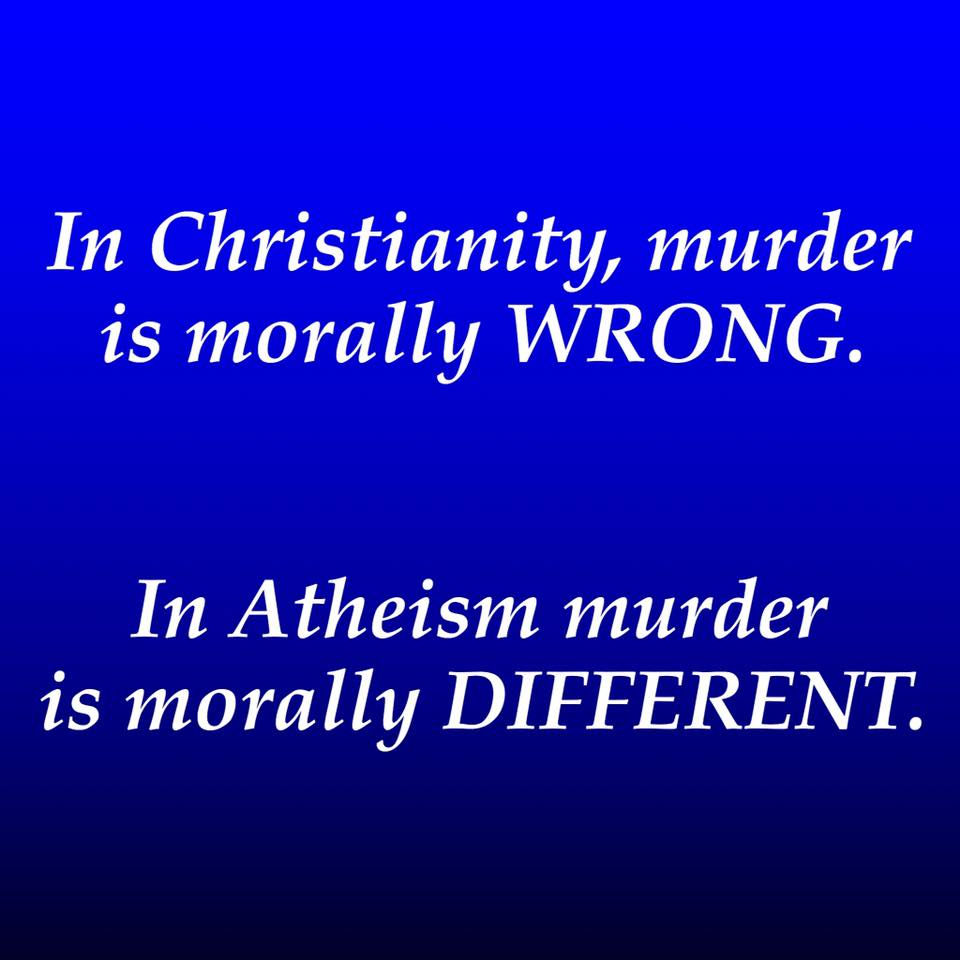Morally wrong, or morally different?
- Bible Brian

- Jul 21, 2021
- 4 min read
Updated: Jul 13, 2023

A major flaw in atheistic morality is that, whether atheists like it or not, in their view, all moral views are equal. As Christians, we have a solid moral foundation: The word, and more importantly the will of God.
The will of God is so important that it actually supersedes His word. We see that there are some things God is willing to tolerate, in spite of His hatred for them, for His own purposes. Divorce, for example, is very explicitly against His will. In Malachi 2:16, we are told that the Lord hates divorce, and yet, He allowed it under some circumstances in the Old Testament, and in the New Testament, divorce is still permissible in the case of sexual immorality, or in the case of an unbelieving spouse seeking a divorce. From this, we can say that although divorce does not always violate His law, it does violate His will, and so even when divorce is not sin, it is still not good.
A more black and white issue is murder. There are zero circumstances under which God will allow the intentional and unjust taking of a human life. Murder is against God's will, and His law. We even have a reason why: Man is made in God's image. Therefore, when you lash out against man, you are actually lashing out against God. For this reason, God commands against murder, and actually prescribes death as the appropriate penalty for it. From this, a Christian has a very solid source for saying murder of all kinds is evil at all times. This is not just an opinion, but a fact. Can an atheist say the same? If there is no God, is murder really evil?
Atheists have one common doctrine between the lot of them: There is no God. Beyond this, atheists agree on virtually nothing, including the ethics of murder. Eugenics is an inherently atheistic invention. Motivated by a misguided belief in Evolution, eugenics is the practice of controlling the human population, much like controlling our cattle, by sterilising, and in some cases even killing people with traits we do not want our species to have.
Atheists have a wide range of views on eugenics. Charles Darwin was an early advocate of it, but believed it should be voluntary. Certain government regimes have not been so tolerant. Even today, things like abortion and euthanasia are heavily debated. Some believe it's a matter of choice, others believe it is obligatory. Still more believe it should be permitted, but limited to some arbitrary degree.

Some atheists even go one step further, such as the Texas Church shooter. As an atheist troll, he eventually took his views to the extreme, loading up with plenty of ammunition (far more than he actually got to use), suited up in some high tech body armor, and killed 26 people before he, himself, was shot by an armed hero, Stephen Willeford.
With all these different views on murder, atheists are faced with a very uncomfortable question: Which of them is right? The only consistent answer available to an atheist is that actually, none of them are. An atheist has no authoritative source that says "thou shalt not slaughter a child at 9 months", or "thou shalt not shoot up a Church". An atheist has no Bible to tell them "abortion is a human right" or "a doctor ought to violate his Hippocratic oath by doing great harm to the most vulnerable members of our species". Atheists, by the very nature of their worldviews, can agree or disagree on any moral issue, and convince each other only by appealing to each others hearts and hoping that there is at least some subjective agreement.
This creates another problem. The Bible tells us two things about the heart. First, it is deceptive above all things, and desperately wicked. Second, even in that, the law is written on our hearts. Because of this, atheists both recognise that there is some form of morality, and that ultimately, none of us achieve it perfectly. The majority of atheists, by pure instinct, do not often live like atheists.
Now, I'm willing to lay this down as a rule: If your worldview is so logically inconsistent that you must intellectually affirm that which you must also intellectually deny, you ought to discard it and find a better one. I present to you Christianity, a religion that not only acknowledges that moral laws exist, and that we have broken them, but also provides a solution.
When a moral law is broken, punishment naturally follows. However, who takes that punishment is up for dispute. An innocent person may volunteer to take the punishment due to the offender. And as it happens, a valid candidate did just that. The Lord Jesus Christ lay down His life, receiving the full wrath of God for sin. Because of this, all sin can be forgiven. All it takes is to confess Jesus as Lord, believe He rose from the dead, and you will be spared the punishment of sin. After that, find a local, Bible-based congregation of believers, and be baptised as a show of good conscience towards God. This is morally necessary, written in black and white as a communication from the God who created us, and can destroy us.






Comments